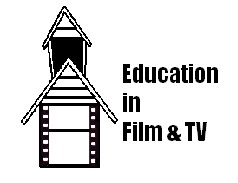The Paper Chase, a movie that centers on the lives of first-year Harvard Law students, is an entertaining piece about higher education. One of few films that focuses on law students, the movie provides insight into the stresses and pressures of law school, while at the same time painting a stereotypical portrait of law students and professors. The Paper Chase was later made into a TV series, staring John Houseman, and aired from 1978-1986. The trailer can be viewed here.
The Paper Chase provides an excellent reminder that graduate and professional programs are difficult. In my own graduate program, admitting that you were stressed out, overwhelmed, feeling underprepared, and doubting why you were pursuing your advanced degree were seen as signs of weakness. Such realities are often ignored- or worse- hidden from plain sight. The Paper Chase provides a realistic portrait of many of these same issues as faced by graduate students today. Cut-throat competition amongst peers, feeling overwhelmed by the amount of reading and work, comparing yourself to other students, doubting your ability, having breakdowns- all of these issues are portrayed in the movie. On one hand, the film provides a refreshing reminder that what students experience in graduate school today is normal, even if we do not admit or talk openly about it. On the other hand, I have to wonder if this portrayal contributes to stereotypes about law students- that law school is impossibly difficult and those who survive it are smarter than the average bear.
The only professor that appears in the movie is Charles W. Kingsfield, Jr., played by John Houseman. Kingsfield is a highly feared and respected professor, an expert in contract law, and is known for breaking down first-year students. The main character, Hart (played by Timothy Bottoms), throws up after being ripped to shreds in his first class with Kingsfield. His reputation precedes him, and a number of the students would give anything to impress him. He swears by the Socratic method, stating that the students "come here with a skull full of mush, and you leave thinking like a lawyer." Unlike some teachers and professors today, Kingsfield doesn't think twice before telling a student their answer is insufficient, or making an example out of them in class. As with the portrayal of the students, Kingfield's character can be seen as a refreshing take on professors, but also may contribute to the stereotype of how difficult law professors (and by extension, law school) can be.
Other topics that appear within the movie include the balance between family and graduate school, mental health wellness, and social networks via study groups. A number of differences between the early 1970s and now are humorous- law students living in dorms on campus, typewriters, the clothes, and definitely the hair. But also notable is the lack of women in the first-year class. Harvard began admitting women to law school in 1953, and appointed its first female dean, now Supreme Court-nominated Elena Kagan, in 2003. Today, nearly half of Harvard's law students are women.
Finally, the movie portrays higher education at a time when students were not viewed as paying customers to be satisfied by businesses (i.e., colleges). Students in the movie work hard to earn their grades, and they are feel entitled to As. There are no student support services shown in the movie, students respect the professor, and work hard to make an impression on him. The treatment of students as students, versus a tendency to view them as paying customers, is a significant shift, and offers the audience an opportunity to contemplate the condition of higher education today.
Subscribe to:
Post Comments (Atom)

No comments:
Post a Comment